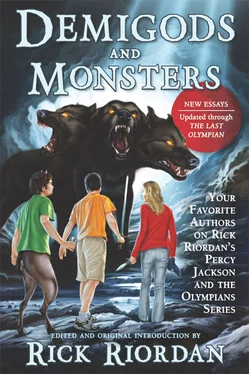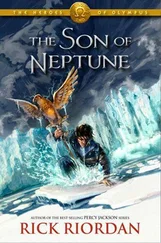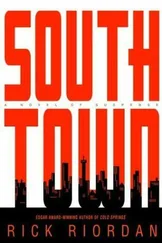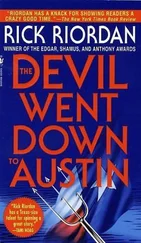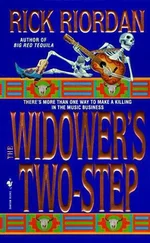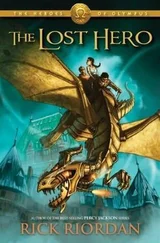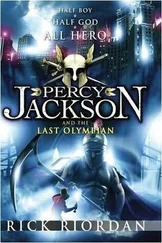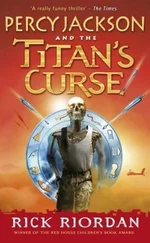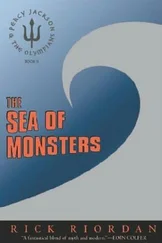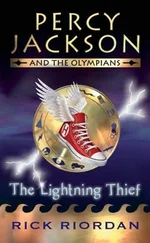When I speak to school groups, I often ask children what Greek god they would like for a parent. My favorite answer was from a schoolgirl in Texas who said, “Batman!” Actually, the girl’s suggestion of Batman as a Greek god is not too far off, because it’s the same idea at work: creating a superhuman version of humanity so that we can explore our problems, strengths, and weaknesses writ large. If the novel puts life under the microscope, mythology blows it up to billboard size.
Myths aren’t something that happened in the past, either. We didn’t leave them behind with the Bronze Age. We are still creating myths all the time. My books, among other things, explore the myth of America as the beacon of civilization, the myth of New York, and the myth of the American teenager.
When we understand classical mythology, we understand something of our own nature, and how we attempt to explain things we don’t comprehend. And as long as we’re human, there will be things we don’t comprehend.
On a more basic level, Greek mythology is simply fun! The stories have adventure, magic, romance, monsters, brave heroes, horrible villains, fantastic quests. What’s not to love?
Mythology especially appeals to middle grade readers because they can relate to the idea of demigods. Like Hercules, Jason, and Theseus, Percy Jackson is half-man, half-god. He is constantly struggling to understand his identity, because he straddles two worlds but belongs in neither. Middle schoolers understand being in between. They are between adulthood and childhood. They feel stuck in the middle all the time, trapped in an awkward state. Everything is changing for them—physically, socially, emotionally. The demigod is a perfect metaphor for their situation, which is why the hero’s quest resonates with them.
When I do school events, I usually play a trivia game on Greek mythology with the kids. It doesn’t matter what school I visit or how little mythology the students have done in the classroom. The students always know the answers, and the adults are always amazed. I can almost guarantee some teacher will come up afterward, wide-eyed, and say, “I didn’t know our students knew so much mythology!”
It’s not a surprise to me. Young readers own mythology. They see themselves as the hero. They gain hope in their own struggles by following the quests. And yes, sometimes they even see their teachers as the monsters!
About This Anthology
Within these pages, you will find out what really makes Dionysus tick. You’ll learn how to assign a letter grade to your parents. You’ll explore the coolest monsters and most horrible villains of the Percy Jackson series. You’ll decide whether becoming a Hunter of Artemis is a good deal or a disastrous mistake. You’ll even learn how to unfreeze your eyeballs and recognize your own prophecy. Which essay comes closest to the truth? It’s not for me to say.
About a year ago at a signing for The Lightning Thief , a boy raised his hand in the audience and asked, “What is the theme of your book?”
I stared at him blankly. “I don’t know.”
“Darn it!” he said. “I need that for my report!”
The lesson here: If you want to know the theme of a book, the last person to ask is the author. This anthology, however, offers fresh perspectives and amazing insights. If you’re looking for something to lift the Mist from your eyes and make you say, “Aha! There are monsters!”, then you’ve come to the right place.
Monster Recognition for Beginners
Lessons from Percy Jackson on Monsters and Heroes
Rosemary Clement-Moore
Every young hero will encounter monsters. That’s a given. But will you see them before they see you? Rosemary Clement-Moore offers this handy survival guide for demigods, chock-full of tips to help you a) recognize the warning signs that a monster is near, b) avoid it if possible, and c) know what to do when you have to fight. Study up, demigods. You never know when your math teacher will start to grow claws.
What would you do if you woke up one morning and found a satyr on your front porch, and he explained that he was going to take you to a special camp for people like you: half-god, half-human?
You might be tempted to laugh, thinking it’s a practical joke. Or maybe you’d think it was great. But if you’ve read the Percy Jackson books, you would also be seriously worried. Being a demigod may sound glamorous, but in Percy’s world, the child of a god can look forward to a life full of hardships and danger. Heroes, whether they are on a quest or just trying to live through the school year, must always stay on their toes and on the lookout for monsters.
Imagine you’re living in Percy’s world: Does that donut store on the corner make a shiver run down your spine? Does the popularity of a certain coffee chain have anything to do with the siren on its logo? And what about the homeless man under the bridge near your apartment: Does no one think it strange that he wears a muffler and trench coat all year-round?
Or maybe you live in the country, and suddenly a lot of cattle are mysteriously disappearing. Is it a coyote problem, or a wandering monster snacking on your uncle Walt’s best milk cows? What really started those California wildfires: a careless camper or a fire-breathing chimera?
To Percy and his classmates, asking these kinds of questions could mean the difference between life and death. Not to mention the success of a quest. Ignoring their instincts could lead to death . . . or worse, humiliating defeat.
If you suddenly discover you are a demigod like the ones in Percy Jackson’s world, don’t be lured into spending all your time on rock climbing and archery practice. These things are important, but if you really want to survive a monster attack, you need to learn how to recognize them. That way you can make a plan for fighting, or fleeing, whichever seems more prudent. Percy Jackson has had to learn these lessons the hard way. While some of his classmates might consider the constant threats to life and limb opportunities for personal growth, the wise hero should take a page from the children of Athena and fight smarter, not harder.
Fortunately, we have Percy’s triumphs—and mistakes—to learn from. So just in case you do open your door to a satyr one morning, here’s some of what I’ve learned from reading the Percy Jackson books: three easy steps on how to survive in a world full of monsters who want to kill you.
Lesson One: Monsters and You
The first thing to realize in dealing with mythical creatures is the basic nature of the relationship between hero and monster: There is a very good chance that even a random encounter between them will result in death for one or both. Simply stated, heroes kill monsters, and monsters resent that fact.
Let us take some examples from the ancient world: Bellerophon, Theseus, Hercules, and Perseus. [1] The original one, not Percy Jackson of The Lightning Thief , etc. The ancient Perseus was the son of Zeus, not Poseidon, so it’s curious that his mother picked that name.
All of them heroes, all of them slayers of monsters—Chimera, Minotaur, Hydra, and Gorgon. And the monsters never forget it. Youth is no protection, either; monsters have no ethics, so they don’t have an ethical problem with getting rid of their natural enemies while they are still young and vulnerable.
Now, a demigod has certain advantages over monsters. Depending on the type of creature he’s facing, the demigod may be faster or more mobile. His ability to use a weapon may counter the natural advantage of, say, a bulletproof hide, like the Nemean Lion’s, or seven heads that always grow back, like the Hydra’s. The human half makes the hero smarter than the average monster, provided the hero actually uses his brain. The god half doubtlessly adds advantages as well, though of course this would largely depend on the god in question.
Читать дальше
